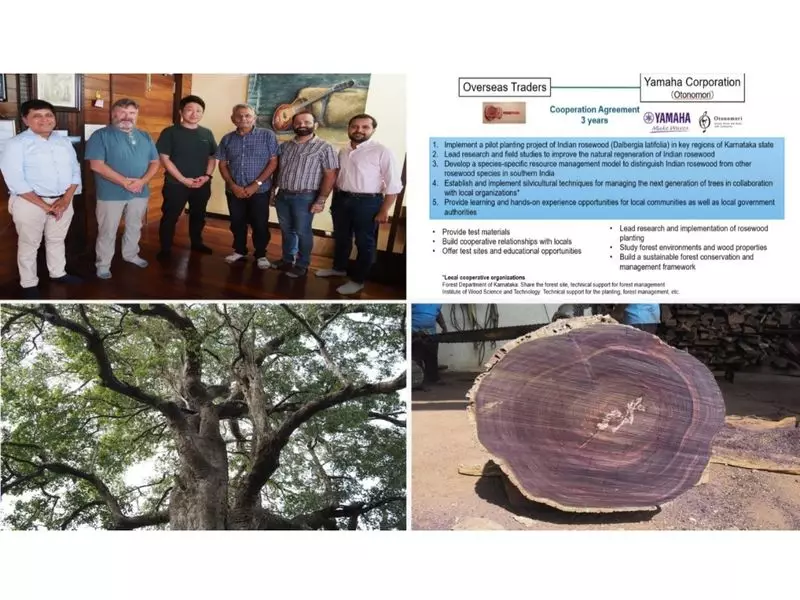
In a significant move toward environmental sustainability, Yamaha Motor India has forged a strategic partnership with international traders to promote the conservation of Indian Rosewood, a precious timber species facing increasing threats from deforestation and illegal logging.
Collaborative Initiative for Forest Preservation
The Japanese automotive giant has joined forces with multiple overseas trading companies to establish a comprehensive framework for sustainable forest management. This partnership aims to address the critical challenges facing Indian Rosewood, scientifically known as Dalbergia sissoo, which has been listed under CITES (Convention on International Trade in Endangered Species) regulations since 2017.
The collaboration represents a proactive approach by corporate entities to contribute meaningfully to forest conservation while maintaining responsible business practices. Yamaha's involvement underscores the company's commitment to environmental stewardship beyond its core manufacturing operations.
Protecting the Precious Sheesham Wood
Indian Rosewood, commonly referred to as Sheesham in local markets, holds immense ecological and economic significance across the Indian subcontinent. The species is renowned for its durable, high-quality timber used in furniture making, musical instruments, and luxury wood products. However, decades of unsustainable harvesting have pushed this valuable resource toward depletion.
Under the new conservation initiative, the partners will implement scientifically-backed forest management practices that ensure the long-term viability of Indian Rosewood populations. The program includes measures such as controlled harvesting, replanting campaigns, and community engagement to protect existing forests while promoting new growth.
Market Impact and Sustainable Sourcing
The partnership directly addresses the growing global demand for ethically sourced wood products while complying with international trade regulations. With CITES restrictions requiring special permits for Indian Rosewood exports, this initiative provides a legal and sustainable framework for international trade.
Yamaha and its trading partners will work closely with local communities, forest departments, and certification bodies to establish transparent supply chains. This approach not only protects the environment but also supports the livelihoods of communities dependent on rosewood resources.
The companies involved have committed to regular monitoring and reporting mechanisms to track the ecological impact of their conservation efforts. This includes biodiversity assessments, carbon sequestration measurements, and socioeconomic evaluations of affected communities.
This landmark partnership sets a new standard for corporate environmental responsibility in the forestry sector, demonstrating that commercial interests and ecological conservation can successfully coexist. The initiative is expected to serve as a model for other companies seeking to integrate sustainability into their supply chains while contributing to global conservation goals.






